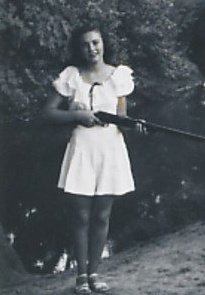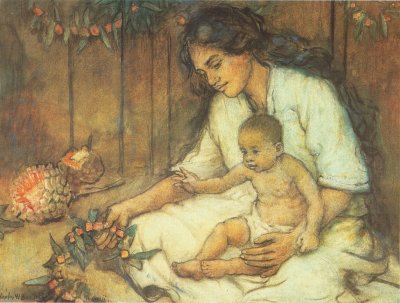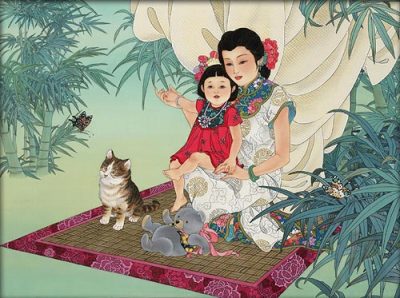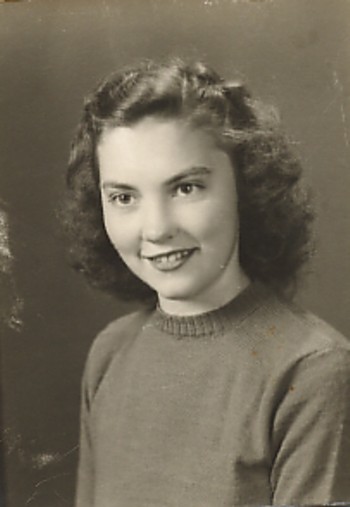Watching the Atrocities
Mamacita says: I used to wonder how in the world the German people could watch their government commit atrocity after atrocity and do nothing, how they could see it and know it was diabolical and be helpless to stop it. How could they not have stopped it? It’s beyond comprehension that they let it happen and didn’t stop it. It could never happen again. The world has evolved, and it could never happen again. America would not let it. Now, I wonder how WE can stop the same thing, happening here. It has already begun. America is embracing it. We are no longer circling the drain. We are in the sewer. We are in the sewer, and there are those who are reveling in the sewage. We can no longer condemn the people who let the Nazis drag them to Hell. They are us.
Mama. Mommy. Mom. Mother. Mamaw.
 Mamacita says: I was reading an article somewhere, by somebody*, that stated that no matter how old we get, there are still times when we want our mother. Our fifty-year-old mother.
Mamacita says: I was reading an article somewhere, by somebody*, that stated that no matter how old we get, there are still times when we want our mother. Our fifty-year-old mother.
When our mothers are young, we don’t consider them ‘friends.’ We don’t consider them young, either, because when we’re very young, all adults are old. Heck, our 12-year-old cousins seem like adults. Our 22-year-old teacher and Grandma: one and the same, age-wise. No, to a child, most adults are old; they’re not sweet young things. They never were; it’s not possible.
Our mother was always a mother. She had no life before us. She’s just Mommy, when we’re young, and when she’s young. We don’t even know she was young till we look at old pictures. And then we’re blown away because, “Oh my gosh, look how YOUNG she was there!”
But as we get older, our mothers seem to stay the same, and somehow the years between us don’t matter as much as they used to.
They stay the same, that is, until we take a good long look at them and it hits us that they look old. Not just mom-old, but OLD. Wrinkly. And you know there’s white underneath the Miss Clairol. And they aren’t as sure-footed as they used to be.
This is shocking, but it’s okay, as long as the MOM is still there inside the stranger-every-day body. You know, MOM. The lady who can make magic with a word or a touch? Her? That’s the one.
Good thing WE’LL never get old like that, huh. Wait – is that mom in the mirror there? WHAT? Impossible.

This Sunday is supposed to be a day filled with mothers. Mine, my sisters, my niece, grandmothers, aunts, daughters, cousins, me. . . . all mothers, and several of them more than one KIND of mother. (no, not THAT kind of mother. Perhaps you were thinking of YOUR family?) Many mothers. But not this year. This year, we gather via the internet, but we still gather.

Once upon a time, we were just sisters and wives and daughters when we got together, sharing a mom and having first names. Now, we’re all Mom, Mommy, Grandma, Mamaw, Aunt, Great-aunt, mother-in-law . . . . I can remember days when I couldn’t remember the last time someone called me by my actual name.
I also remember, clear as a bell, the first time my child said my new name. Mama. That moment is etched on my heart, in beautiful calligraphy, and decorated with fresh flowers. I still love to hear my children say “Mom.” These women whose children refer to them by their first names, instead of some variation of mother? I pity both woman and child. Somethin’ WRONG wit dat. Somebody gots her priorities all messed up. That woman ain’t right in the head.
Naturally, this doesn’t keep me from snickering at women who choose a synonym for “grandmother” that sounds like poo or a body part.
Contrary to popular belief, mothers are not omniscient; we don’t have eyes in the backs of our heads, and we can’t read your mind. The only exception to that would be MY mother.

My beautiful mom. Senior year. She wasn’t my mom yet.
And speaking of my mother. . . Mom, I have tried to emulate you in many ways, all of my life. You read to us. You sat down on the floor and played with us. You used the power of Parenthood and created Special Days, all throughout the year. Christmas is a holiday, sure, but it was YOU who created OUR Christmas. I have tried to “do” holidays just as you did, all my married life.
There are so many kinds of mothers. Most are awesome. They don’t have to look like this to BE awesome, but I think we all believe we have moments like this. I hope that’s correct.

I’m looking forward to Sunday, dear sisters and nieces and daughters and all of the other wonderful descriptions that come with all of you. I might be the weirdo of the bunch – oh, it’s not like I don’t KNOW that!!!! -but I might also be the most sentimental of the bunch.
I’ve read that when we are in our twenties, the fifty-year-old mother is somehow at her peak of Mom-ness and Friend-ness. Our fifty-year-old mother is an expert in so many things.
What we don’t realize is that our fifty-year-old mother is still missing HER fifty-year-old mother.
And what very few of you know yet, is that your fifty-year-old mother is still as insecure and wondering as she was when she was in her twenties. Your fifty-year-old mother is still beating herself to death over mistakes she made when you were three. So is our eighty-year-old mother. And the thirty-year-old mother. All of us need to give ourselves a break.
How do I know this? I’d rather not say.
The eighty-year-old mother is starting to get a little bent. She falls down sometimes. Her memory, while still razor-sharp, is beginning to falter a bit. If it’s MY mother, she still has a social life that beats the social life of anybody I know, not even considering age. Her hair and makeup are lovely. Her clothes are stylish and colorful. She looks better than I do.
The seventy-year-old mother is still cool. Still Mom. It’s just that the fragility is starting to show, and the mortality thing comes to mind more than we’d like.
The fifty-year-old Mom is the epitome of Momitude. She KNOWS things. We should listen more to our fifty-year-old Mom.
Unless she’s a meddling idiot with outdated stupid ideas and a lot of unwanted advice, of course. You don’t have to listen then.
Chances are, however, that if your fifty-year-old Mom is mean and judgmental and delights in hurting people’s feelings, she was exactly the same when she was in her twenties. Bodies change a lot*. Personalities seldom do.
The following** has been making the internet rounds for a long time now, and most of you have no doubt seen it before. However, I’m posting it anyway, because for some reason, it means more to me with each passing year.
============
The Images of Mother
4 YEARS OF AGE ~ My Mommy can do anything!
8 YEARS OF AGE ~ My Mom knows a lot! A whole lot!
12 YEARS OF AGE ~ My Mother doesn’t really know quite everything.
14 YEARS OF AGE ~ Naturally, Mother doesn’t know that, either.
16 YEARS OF AGE ~ Mother? She’s hopelessly old-fashioned.
18 YEARS OF AGE ~ That old woman? She’s way out of date!
25 YEARS OF AGE ~ Well, she might know a little bit about it.
35 YEARS OF AGE ~ Before we decide, let’s get Mom’s opinion.
45 YEARS OF AGE ~ Wonder what Mom would have thought about it?
65 YEARS OF AGE ~ Wish I could talk it over with Mom.
======
Let’s talk things over with Mom while we have the chance.
If your own mommy doesn’t appreciate you, come right on over here. I’m not saying exactly how old this Mommy is, but she’s in her peak and prime of Momitude. I do, however, screw it up sometimes, even now. I do my best. That’s all we can do, in any and every phase.
I have a lot of advice, but I’ll wait till you ask me for it***.
*Unless you’re Jamie Lee Curtis.
**If I knew the author and the name of the article, I’d have mentioned it up above, silly.
***Most of the time.
Pippa Passes and So Do We

Mamacita says: Welcome to my TEDTalk. Something Joe Trester wrote a few days ago has stayed with me. People, we never know what kind of influence we have on others whose existence we barely know about. Robert Browning’s “Pippa Passes” is about a sweet, naive young mill girl who, on her only day off for the entire year, strolls through her village making a positive impression on people without even knowing it. She walked by, maybe exchanged a word or two, and was gone out of their lives, never to return, and yet, their lives were changed by this sweet, smiling, singing, naive girl, for the better.

As I re-re-re-re-re-re-read “Angel in Heavy Shoes,” part of Lenora Mattingly Weber’s YA series about Katie Rose Belford, who was studying “Pippa Passes” in her high school lit class, I am really affected by Katie Rose’s realization that while it’s not hard at all to imagine a sweet young girl having this kind of influence on others, it’s also true that people who are not sweet, not naive, not young, not nice, and not even civil can have the same effect. In this book, a character just out of reform school, by just being himself and existing, has a positive influence on almost every other character in the novel. All of us walk past others without thinking about them, every day. (Well, not right now, but ordinarily.) They would see us, maybe hear us, and who knows whether or not an overheard word or a smile might influence someone positively, even save a life. I’ve been influenced by strangers in public, in both positive and negative ways. I can remember things someone said years ago, even today. Even if we don’t actively remember, the mind never lets go of a thing. It’s in us and affecting us when we don’t even realize it. Likewise our words and smiles on others, people we didn’t even notice and couldn’t pick out of a lineup.

During these parlous times, when people are so quick to pass judgment (mea culpa, mea culpa, mea maxima culpa) let us try to remember that the scope of influence is larger than we can imagine. Let us try harder. Pippa had one day off for the entire year, and inadvertently influenced many strangers in a positive way by just walking around and being herself. Many of us have been off for weeks. (maybe all our lives – none of that, now!) Tempers are flaring. Frustrations are building up. None of us is the same person we were a month ago. Being ourselves is harder because we’re learning who this new self really is.
Do I have to have a point? I guess I can drag one in by the hind legs and just say, “Let’s all try harder to be better tomorrow than we were today.” It’s difficult, but not impossible. We can at least try.






